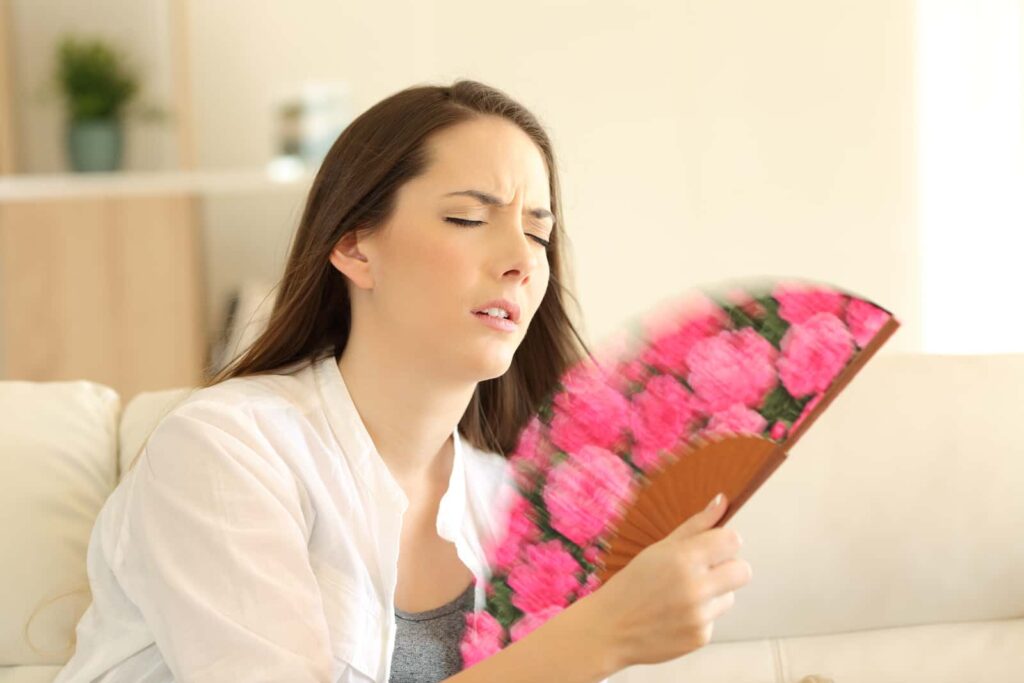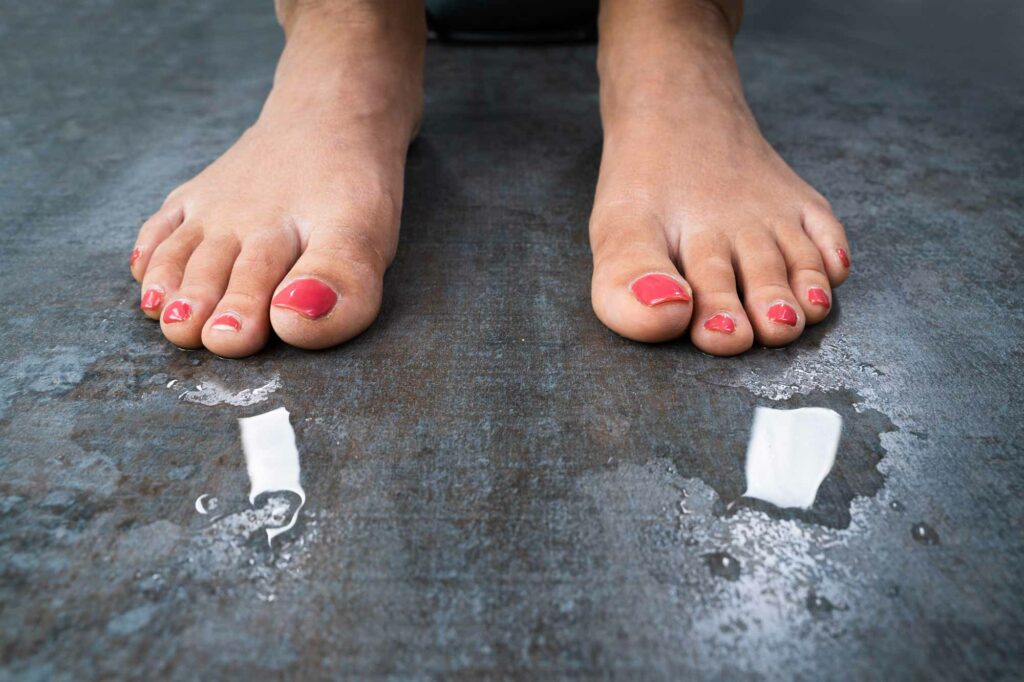You may sweat a lot when it’s too hot or when you exercise – and that’s completely normal. Sweating is your body’s way of cooling down and eliminating some chemicals.
However, some people may drip sweat even when it is not hot, and they’re not exercising. It can affect any part of your body, especially the head, hands, armpits, and feet. Sometimes the sweat mixes with your skin’s bacteria and causes your armpits and feet to smell bad.
For these people, sweating is a difficulty that can be very hard to live with, even though they have no other health problems. In most cases, there is no identified cause for this condition.
Read on to learn what reasons might be causing your heavy perspiration and what treatments are available for it.
Periods And Excessive Sweating: Why do you feel so hot?
Some people develop sweating and hot flashes before and during their period each month. These symptoms do not depend on age but are associated with fluctuations in certain hormones (progesterone and estrogen) during the cycle.
In the second phase of the cycle, after ovulation:
Progesterone levels increase, and estrogen levels decrease. This reduction can affect the part of your brain (hypothalamus) that controls internal temperature. As a result, your brain may respond more promptly to even minor temperature changes and send signals informing your body to cool you off by sweating – even if it is not necessary.
If you undergo these symptoms, you can minimise them by avoiding warm places in the days leading up to your period. Wearing natural fabrics, doing light exercises, and consuming more vegetables and fruits can also help balance your temperature and reduce sweating.
What Causes Excessive Sweating?
Usually, people sweat because of stress, physical activity, and weather changes. Teenagers tend to sweat more than they did when they were younger. That is because their sweat glands are also growing along with the rest of their body.
Excessive sweating can also happen before menstruation, particularly at night. This is caused by variations in hormone levels and a slight body temperature rise in the cycle’s luteal phase. However, this condition is normal and does not require treatment.
Also, suppose you experience PMS-related sweating, especially at night. In that case, you may want to shower more often, wear pyjamas, use a bedsheet made from natural fabrics, and open windows or use a fan to maintain a pleasant temperature in the bedroom.
Other causes of heavy sweating:
Several medical conditions, such as heart failure, diabetes, anxiety, and overactive thyroid, can cause excessive sweating. Moreover, some drugs may also cause heavy sweating as a side effect.
Tips To Stop Excessive Sweating
Although sweating is a natural function of the body, there are several ways to manage it if you feel uncomfortable. In order to avoid discomfort from excessive sweating, try the following methods:
- Maintain proper hygiene: Shower every day using an antibacterial soap to control the bacteria that can inhabit your sweaty skin and cause foul odours. Also, don’t forget to dry yourself thoroughly before and after applying antiperspirant.
- Wear natural fabrics and light clothing: Do not wear heavy clothes that will trap sweat. Instead, wear light and breathable fabrics such as cotton and silk. Don’t neglect wearables for your feet; they can sweat too. So wear socks that wick moisture away from them (i.e. merino wool and polypro).
- Keep a moderate (cool) temperature: Regular air flowing via a fan or an air conditioner can also keep you cool.
- Lifestyle changes: Excessive sweating can also be caused by nicotine, alcohol, spicy food, and caffeinated drinks. So make sure to use them less.
- Stay hydrated: Increase your water intake to stay hydrated and refill your fluid balance after excessive sweating.
- Try relaxation techniques: Consider relaxation techniques such as meditation, breathing practices, yoga, long walks, warm baths, and quiet music. These can help you promote a peaceful state of being and learn to control the stress that triggers sweating.
These suggestions can significantly help you reduce excessive sweating and avoid related inconveniences. However, if sweating affects your daily life despite these tips, consult your dermatologist or healthcare provider. They can suggest some prescription to overcome this condition.
Sweaty feet: How to handle them?
Excessive sweating of the feet appears to be a genetic problem. No one knows the exact reason behind why it happens, but those who sweat excessively seem to have a different viewpoint than other people.
Usually, most people sweat when it is hot out or when they become warm. In contrast, others sweat due to various reasons, such as stress, genetic predisposition, medication use, and hormonal failures.
Following are the tips that can help minimise any discomfort associated with sweaty feet:
- Pay special attention to your foot hygiene, especially between the toes. Aim to wash your feet at least once (if not twice) a day. Use an antibacterial soap or add a few drops of antimicrobial essential oil, such as eucalyptus or tea tree, to the water.
- Do not wear the same pair of shoes on two consecutive days. Doing this gives your shoes a chance to dry out entirely between wears. If you want to speed up this process, leave footwear outside for 1–2 hours on dry days. In warm weather, wear open-toed shoes when possible.
- Using black tea may also be an effective way to stop sweating. This remedy involves soaking the feet in a basin of warm water having two black tea bags. The tannins in the tea clog the pores in the skin, reducing sweating. Soak sweaty feet in that water for 20 minutes at a time, and repeat this daily if needed.
You can also contact your health care providers if you feel you need additional suggestions. They can recommend certain antiperspirants, ionotherapy, and other measures.
The Takeaway
Sweating is a normal bodily function. Most people start to use antiperspirants to minimise sweating and odour. However, sweating either too much or too little can also indicate a medical problem.
Ensure making lifestyle adjustments to accommodate your sweating. And if this isn’t enough, consult your healthcare provider, especially if you sweat too much.




Recent Comments